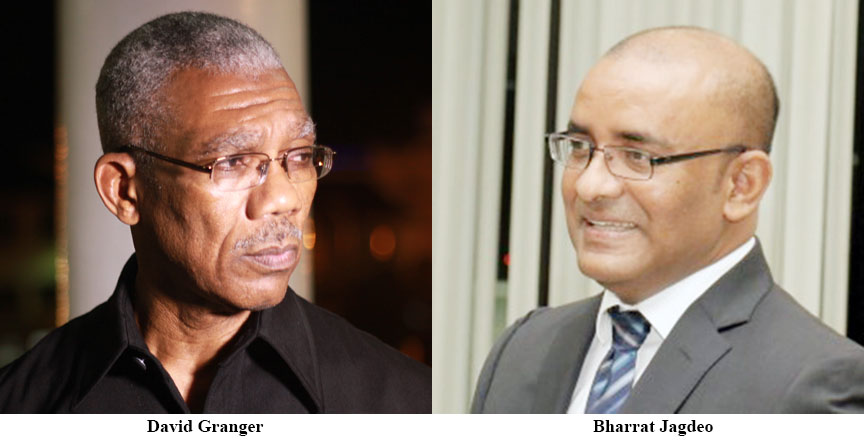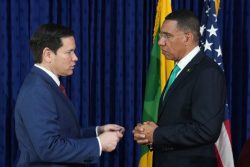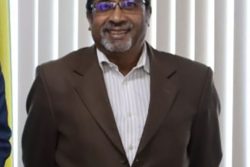President David Granger on Thursday signalled that long awaited dialogue between the governing coalition and the opposition will likely take place only when Opposition Leader Bharrat Jagdeo is ready.
“It takes two persons to talk, otherwise it would be a monologue. He has to be ready and if that is what he said, that is what he said,” Granger told reporters as he spoke for the first time on the issue.
He was referring to Jagdeo’s assertions that talks were not likely to begin before the local government elections, which are slated for November.
The President noted that from the time he assumed office in 2015, he wanted dialogue with the opposition. With three years already passed without Jagdeo taking up the offer, he said he could wait a few more months. “We were ready in 2015 but he explained the circumstances under which the talks were not started. I am a very patient man,” Granger further stated.
A recent intervention by former United States President Jimmy Carter seemingly paved the way for the long-awaited talks.
It was Jagdeo who announced the intervention late last month, following a meeting with Granger to discuss the appointment of the Public Service Commission and the Police Service Commission.
Carter, 93, has had a long history of association with Guyana, dating back to the 1990s, when he brokered sweeping electoral reforms between the administration of the late President Desmond Hoyte and the opposition. These reforms included counting at the place of poll and an expanded elections commission where the Chairman was selected on the basis of what came to be known as the Carter-Price formula.
Jagdeo said Carter had asked about his unwillingness to participate because of Prime Minister Moses Nagamootoo’s role as the government’s point person for the talks. He said he explained to the former US President that the opposition’s objections were down to the fact that it believed Nagamootoo had no real decision-making powers.
“The impression I got from President Carter was that in his conversation with the President, the President indicated that he was inclined to have talks with us, but we in the PPP were not so inclined because we don’t like Nagamootoo,” Jagdeo said.
“I pointed out to President Carter that it was not Nagamootoo that was the issue, it was our concern that we expressed that Nagamootoo doesn’t have any portfolio. He is a lightweight in the government. He would not be able to commit the APNU or the PNC to anything at the meeting. His portfolio, I went through what the elements of his portfolio are… we had a grave issue about Nagamootoo’s ability to commit the President and the PNC to any issue,” he added.
Jagdeo said as their subsequent meeting, Granger said if he had to lead the delegation in talks for Jagdeo to acquiesce then he would do so.
Minister of State Joseph Harmon would later explain the President’s decision was due to his strong belief that dialogue between the two sides is needed if the country is to move forward.
“All of the resources of this country—government, opposition, private sector… and all other stakeholders—are necessary to move this country forward. So dialogue is something he [the President] openly wishes to be associated with and [he] will take every step to ensure we do,” Harmon had said.
Asked if Carter had given suggestions as to the issues to be discussed when he called both leaders, Harmon said that he was not privy to that information but added that he believed that sovereign governments are only given suggestions and thus allowed to determine their own agendas. “We are an independent nation and the President and Leader of the Opposition, we determine what the agenda is. There may be some suggestions but the agenda are items which the two leaders agree on and these are the three matters given to you and will form the basis of the initial engagement and hopefully there will be other meetings,” he said.
Granger has proposed the environment, oil and gas and crime and security for discussion.









